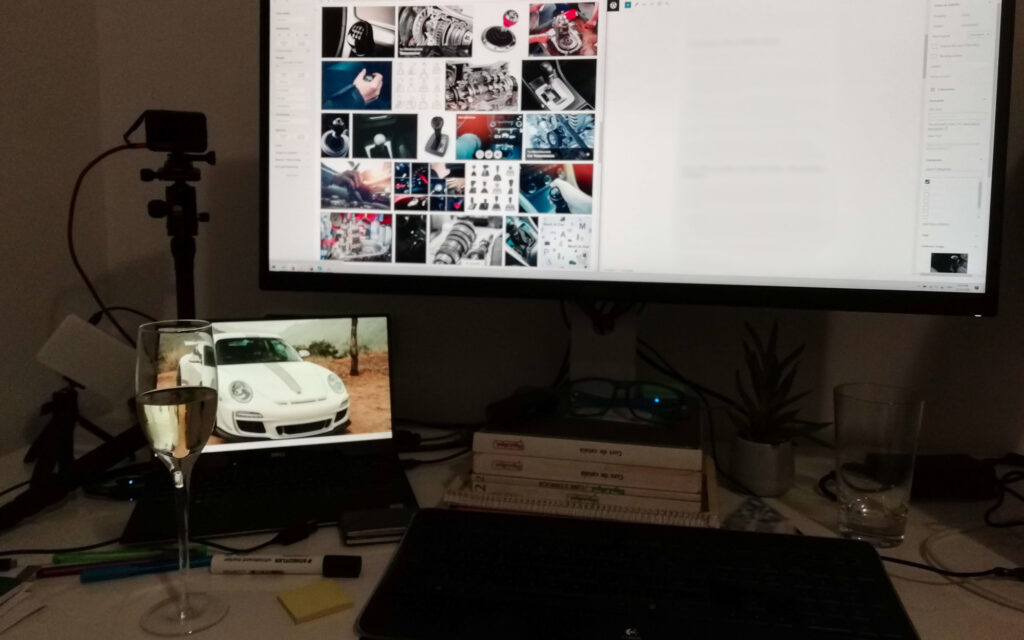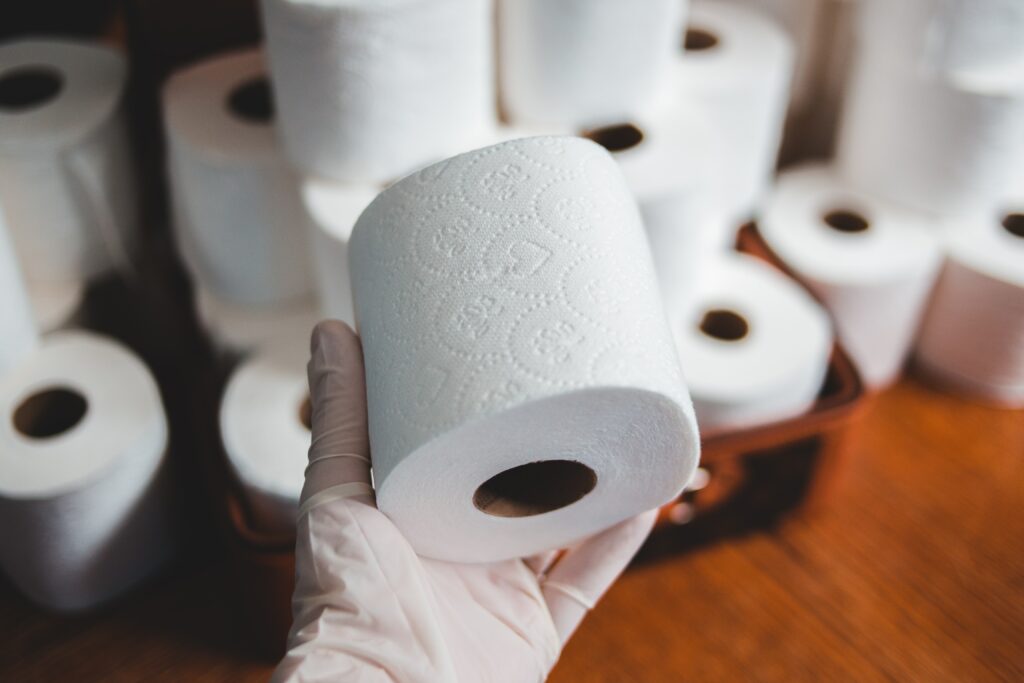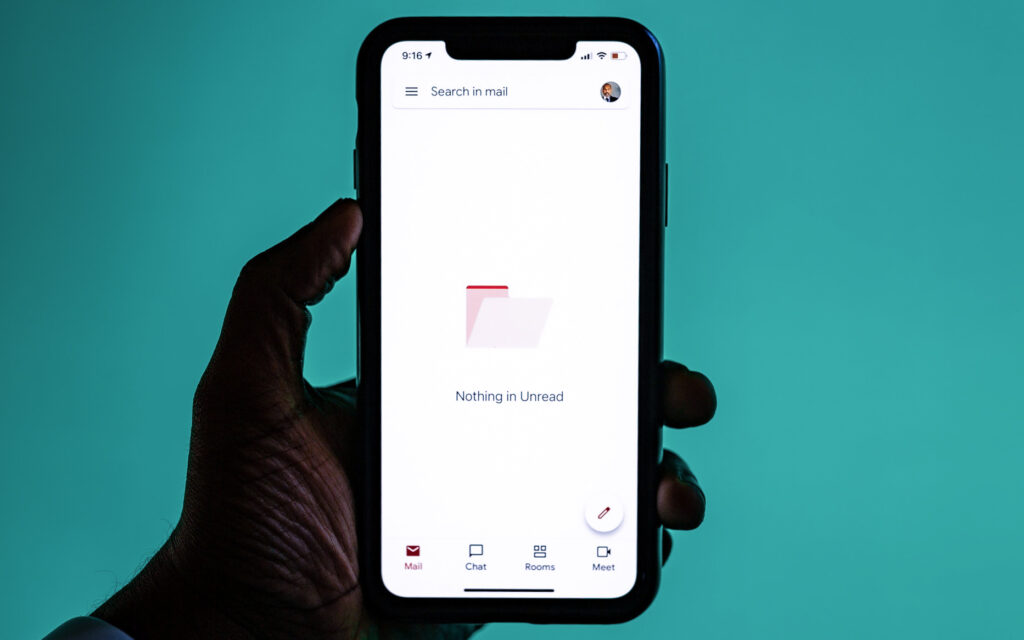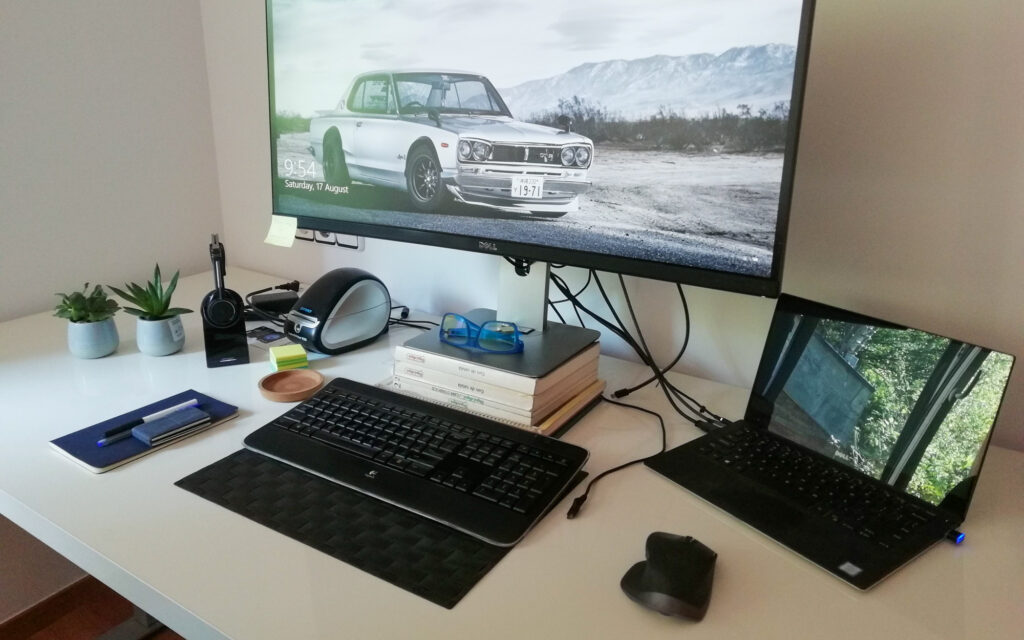What does your desk look like right now? How about your mind? Chances are there’s some correlation between the two.
Our modern world wants us to pursue more. More apps. More shoes. More email newsletters. More holidays. More information.
Anyone who is trying to lose weight knows that “just one more” is a slippery slope, when what we probably need is the opposite.
Below I’ll give you some pointers on how to clean up your life, by giving you insight into how I cleaned up my life.
A Quick Backstory
After returning to work from a break last Christmas, I was already exhausted. I’d taken a week off and though I wanted to hit the ground running, I had little energy to do so.
My to-do list was growing, but my productivity was waning.
Historically I’ve been a perfectionist. In a career, this is valuable as it allows you to become a craftsman in you field. But entrepreneurs have to shake the shackles of perfectionism as it can really hold you back.
When I read a book explaining one must “embrace the chaos” to build a business, I did exactly that. Any time life would get hectic I’d blindly remind myself that “this chaos will pass”.
I shifted into testing mode instead of perfectionism mode and built multiple rank and rent websites as well as a new content site. I re-launched my SEO agency and partnered in a portfolio investment fund that would acquire 10 content websites.
I’d also embraced the idea of a “Someday/Maybe” list. If it wasn’t urgent or necessary in nature, I’d defer it to this list. Technically I was meant to be reviewing this list, but as that was not top priority, that was easily deferred to someday/maybe too.
The problem with this situation is that its fine short term. You can live this way for a few years easily. But like anything that can compound, it becomes larger the longer time ticks on.

Replies to emails took longer. Notifications from social networks, work related or not, would stress me out. The pile of papers on my desk would grow and grow, never getting smaller. Files were somewhere in my Google Drive, and any time I had to login to a website I’d have multiple password managers vying for my attention.
For a vision led, strategic person, I’d become much more reactive. Luckily, I could see this for what it was and begin taking steps to resolve the problem.
Start With a Simple, Physical Clean Up
Sometimes it can be difficult to know which parts of your life need a clean up. If this is you, begin with something physical. If your bedroom, office or kitchen is a mess, clean that up first.
I started by:
- sorting through all the paperwork on my desk and filing it away or shredding it
- re-arranging our home office, so my wife and I had suitable space
- setting up a shoe rack to more efficiently store our shoes
- throwing out some clothes I never wear
You may not think this will have a profound impact, but you will be amazed. If you’re looking at something every day that makes you think “oh, I really need to sort that out”, or it frustrates or disappoints you, that’s energy down the drain that could be spent on more important things.
A few hours here can give you the energy and mental space to consider the bigger things you should be tidying up.

Make a Checklist
Don’t procrastinate by spending too much time on this, but grab a pen and note down things that you need to clean up.
Your subconscious mind already knows what you need to start with, but if you are lost for ideas, ask yourself:
- what have I been meaning to clean up/fix for ages?
- what is something I do often that I don’t enjoy doing?
- what could I remove from my life to make it simpler?
- is all of my “life paperwork” (tax, insurance, boring stuff) up to date?
- what causes unnecessary frustration or stress?
If this doesn’t work, try completing these sentences:
- I should really clean up my ________________
- my life would be simpler if ________________
- I’m running out of space in ________________
- ________________ really overwhelms me
- I’d have more energy if ________________ was organised
Example Clean Up Tasks
For the most part, I don’t own too much stuff, so most of my list was digital. Here are the things I knew I needed to sort out:
- office desk
- computer desktop
- the rest of my computer hard drive
- email accounts (I’ve gone from 6 to 2!)
- Google Drive (consolidating, deleting and sorting the rest)
- Google Photos
- Trello boards (I use these for work and life)
- currencies I hold cash in (don’t ask, unnecessary chaos)
- office cupboards
- password manager and multi-factor authentication overhaul
- deleting websites I am never going to work on seriously
- letting domains expire that I will never work on
- selling websites that are valuable but I’m never going to work on
- bike storage locker
- wardrobe
Your list may look completely different, these are just examples.
Taking Action on a Life Spring Clean
Your list might be long, but you don’t want to spend longer than you need to on this.
If you already started with cleaning up some physical spaces in your home or office, the next best things to tackle are the simplest tasks on your list.
By ticking off your list quickly, you’ll have fewer things on your mind and more mental space for the difficult tasks.
I have the luxury of choosing my working hours, so I worked half days for a week to clean up some of the more time consuming items, like those in my digital life.
If you can, taking a week from work to simplify your life is a great idea.
Practical Ways to Declutter Your Digital Life
I’d created a lot of hassle by not properly cleaning up my digital life. Core tools and accounts I used for business and finances were taken care of, but everything else had taken a back seat.

If you spend a lot of time online, you’ll get a lot of value from decluttering your online life. You can organise your digital life, and make it more secure by:
- deleting any social media accounts you do not use
- in accounts you do use:
- consider leaving groups that you don’t use regularly
- unfollowing people you don’t converse with regularly
- in accounts you do use:
- deleting any unused phone apps
- searching your email inbox for “unsubscribe” and removing yourself from as many newsletters as humanly possible
- setting up an open-source password manager, like Bitwarden or Passbolt
- do yourself a favor and login to Google Passwords to see how many of your passwords Google has “acquired” — export and delete them
- getting rid of any SMS multi-factor authentication and using a YubiKey instead
- deleting any file storage accounts that you no longer use (Dropbox, Google Drive, iCloud, etc)
- archiving emails so your inbox has next to nothing in it
- deleting anything in your Downloads folder
- uninstalling any software you don’t use
- disabling notifications from anything you don’t need
- removing any browser extensions that you don’t need
- finding a day of your life to go through any file storage systems that you use
- deleting and organising your browser bookmarks
There’s a lot more you can do, but this is a massive start.
The real secret in this part of your clean up is to be ruthless. Maybe it’s a sign of being an early internet user with a 28.8kbit/s, but somehow digital hoarding has become a thing.
Don’t delude yourself — if you haven’t organised it, you don’t need it. And even if you do, chances are you can find it again by spending 12 seconds with a search engine.
Incidents vs Problems
In the IT world, there’s a framework called ITIL. Within it, there’s an important distinction between incidents and problems. Here’s the gist:
- Incident: an unplanned interruption, or reduction in quality.
- Problem: a cause, or potential cause, of one or more incidents.
This all sounds very dry, but the takeaway is, your to-do list may be full of incidents like cleaning up your home office, deleting files from your downloads folder, and doing your taxes.
But left unchecked, you’ll be repeating this same exercise next year.
Instead, we want to fix the root cause of the problem.
Building Habits to Keep Your Life Clean for Good
As you are going through your “life clean up checklist”, ask yourself how you can stop this situation from building up again.
Some ideas include:
- checking out as a guest when buying online
- if you find yourself deleting a newsletter without reading, unsubscribe there and then
- spending 1 hour every Friday afternoon cleaning up your desk and computer desktop
- telling your friends you will not join the latest messenger app
- deleting the blurry or bad photos immediately after you take them
- scheduling in time every 3 months to do a mini “life clean up”
- developing a healthy skepticism to signing up to new things
- immediately deleting or archiving emails after dealing with them
- constantly looking for opportunities to simplify instead of complicate
Like anything, healthy habits compound.

Life Gets Messy, Clean it Up
Though easy to acquire more, it’s hard to rid yourself of it. I’ve personally gained a lot by thinking in terms of consolidation, not proliferation. By establishing habits to eliminate and consolidate the things in your life that truly matter, chances are you’ll have much more space to become your best self.
There’s a time and a place for “many things”. I love having multiple sources of income, enjoy different sports, and genuinely believe it’s best to start an entrepreneurial career by starting a few businesses at the same time.
Endless proliferation usually ends up out of control. Keep this in mind the next time you consider adding something new to your life.

Keep writing these blogs man, I love it.
Hey Martin, thanks for saying so! Hoping you’re having a great day.
“developing a healthy skepticism to signing up to new things”
I like this one. I use temp emails addresses a lot for things that require me to sign up to access,or if I want to test something out before committing with my real email address.